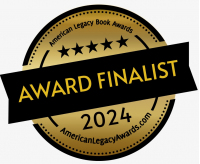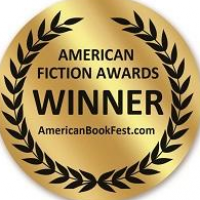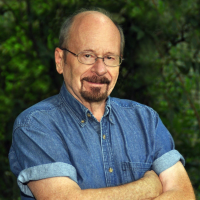Could you tell us a little about your childhood and the struggles you faced growing up, if any?
No particular struggles, although there were plans, ideas, goals, and dreams that never came to fruition, such is life, but, maybe not oddly, I am still chasing some of these! And part of that would be the writing, along the lines of fiction novels. As an adult, I have stayed active and pursued various interests. Began my photography studio 45 years ago, became a licensed private pilot, and been relatively successful in amateur sports car racing.
How does your experience as a photographer influence the way you describe scenes and settings in your novels?
As a professional photographer, I am very visually aware, can set up images in a book as I imagine them, and can perceive things in ways others don't. I want to think I can describe them to the reader in a writing style that will make them realistic and believable, using sight imagery, along with other senses such as sound, smell, and taste, as effective tools to create a scene and set mood, which of course can be quite a challenge when using only words to do so.
Your writing style is described as "methodical." Can you elaborate on your writing process and how you approach the craft of novel writing?
In my case, methodical would translate to slow. I am a lousy typist, but since the advent of word recognition programs, I can put words on "paper" much more quickly and efficiently than I could by typing. Although I have, way back, worked on different book and magazine projects that were accomplished using a manual typewriter and then a basic standalone word processor. I have aspired to do more extensive projects, such as novels, for some time. Much of this electronic wizardry has greatly aided in that pursuit. I also spend a lot of time reviewing my writing to try and get it just as I wanted on the first few tries. Of course, that never happens as I would like, so I am still slow. But methodical sounds better. Along with much research, I work at describing the goings-on in my stories directly and realistically without using any unnecessary wording.
You've had a diverse range of experiences throughout your life, from photography to scuba diving and writing. How have these experiences influenced your writing style and storytelling in your novel?
Many of the experiences and endeavors throughout my years have provided me with a grounded and rounded outlook and knowledge that I can apply to the stories I want to create. The discipline needed to fly an aircraft is helpful and translates to other experiences, as does racing cars. I have spent much more time flying on the ground in a Formula race car on road race courses in the Midwest than in the air, although I have spent a lot of time around various aircraft, including World War II military types. Unless it is part of the story and goes off into science fiction mode, I try to keep things realistic and understandable and have dialogue that best fits the characters.
Congratulations on winning in two different genres at the American Fiction Awards! How does it feel to receive this recognition for your novel, "A Week and a Day," right before your 74th birthday?
It really is a great honor to receive these awards from American Book Fest, who created the American Fiction Awards competition, and an excellent way for authors to showcase their works. It is humbling and gratifying to be chosen and recognized for the time and effort that went into creating AWeek and a Day. It makes it all worthwhile and certainly helps get the book more attention.
Your first book, "Hal Adkins Ain't Normal," is described as a humorous autobiography. How did the transition from writing humor to writing a mystery and science fiction novel come about?
Most of the stories in Ain't Normal came from a humor column I wrote for a local newspaper. Many of them revolve around and evolved from actual events in my life, and of course, with a good amount of embellishment added, or they would not be that funny. Others are basically made up, the end product of peculiar thought patterns and an odd sense of humor. It's not much of a transition to fiction; it's mostly more involved subject matter and situations. Although there is a good deal of humor in A Week and a Day, because I can't help myself, and it can be useful in moving the story along as well as defining characters.
Can you tell us more about the inspiration behind "A Week and a Day"? You it's mentioned that it developed from some "I wonder what would happen if" scenarios and a real-life incident. Could you elaborate on this?
Too much elaboration would take a lot of the mystery out of the story and the ending, but the genesis came from two thoughts/ideas I've had for years, one going back to the 1970s. When blended, they make an intriguing story that people think about long after reading the book. The real-life incident happened more than 50 years ago, when I was a teenager, and I have pondered on it many times, concluding that although one of the main twists in the story may seem far-fetched, after thoroughly researching the concept, I find it is likely a genuine phenomenon, revealed at the novel's end.
"A Week and a Day" is described as a mystery and science fiction novel. What can readers expect from this unique blend of genres, and what makes your book stand out in these categories?
The main character is suddenly confronted with a new reality that is, as the story progresses, often compared to and in direct conflict with the existence he previously knew. There are many comparisons made between the two that cause the reader to give thought and consideration about what was, what is now, and how changes, over time, can affect us all. The story does involve time travel in a unique and very unexpected manner that encompasses a great deal of mystery.
Reviews and comments about your novel have been positive. Could you share some of the most memorable feedback you've received from readers and reviewers?
I am very grateful and appreciative of people's comments about their experience reading A Week and a Day. Some of my favorites: "Such a unique and captivating novel! And mix of history, romance and family, a heartfelt, well-written book with accurate history and historical events." "It also tells quite nicely about the change in our country from the 40s to the present, but in quite an interesting way. Let me say that nostalgia drips from the pages of this novel as the story unfolds, and it is a warm, loving feeling." "This novel starts out slowly, but carefully read it because the story quickly builds on each detail, then the pace quickens more to the point you can't put it down!" "Heartfelt and thrilling, a wonderfully written story about the fragility of time." "The characters were very likable, complex, and dramatic, yet humorous, with a touch of romance!" "The plot is exciting and unpredictable; I felt a lot of emotions throughout. I found the ending to be particularly satisfying despite being unpredictable; it left me wanting more!" Many readers have commented that this novel would make a great movie. Of course, I can't disagree, so Steven Spielberg, if you're reading this…
How do you come up with your characters and develop their personalities in your novels?
At the beginning of the process, there were relatively few characters, but as the story developed, more were added, with a few who previously had minor parts at the start growing into more critical roles as needed. The main characters who compose the greater part of the story were developed along the way, with certain traits that fleshed them out. I often had to rewrite during dialogue or scenes because I knew these characters would not say or do what I wrote. They do really take on a life of their own. Some of the characters were based somewhat loosely on people I know or have known, along with a few things that occurred in my life that fit the characters in the story development.
"A Week and a Day" is the result of meticulous storytelling. Can you share some of the challenges you faced while writing this novel, and how you overcame them?
As so much of the story involves actual history and real places, I constantly felt the need to research both to make sure that part of the telling was accurate and in order. It was often a challenge, and by trying to be accurate slowed the progress. Occasionally, additions or changes were made in one part of the book that directly affected another section. So, adaptations had to be made, often including more research and a calculator! As the story contains several sub-stories, it wasn't easy trying to make sure they all, in the end, matched up and brought the conclusion to a satisfying ending that would not be confusing to the reader.
Do you have any writing rituals or habits that help you stay motivated and productive as an author?
Mostly, I try to get everything that needs to be done out of the way before I sit down and write. This can be a problem as I am still involved in photography, so until all those chores and projects are under control and caught up to my satisfaction, I have difficulty focusing and being as creative as I can and should be. I have to clear my mind of everything else I need to do, or I just can't be very productive. I am simply not one who can sit down and write a few lines or for half an hour or so; I need to be more focused.
If you could offer one piece of advice to aspiring authors, what would it be based on your journey from photography to becoming a published novelist?
Start writing what you truly want and need to write, and do it sooner rather than later!
As an author, what are your goals for the future? Do you have more novels in the works, and can you give us a glimpse of what's coming next?
I have a novel that was started in 2012 that I stepped away from to write A Week and a Day. There were some issues in its development, and I got stalled, but I am now getting back into the push to finish the story. It will also have a sci-fi/time travel component with twists and turns in the lives of several people that I hope will keep the reader interested and turning the pages.
How has your experience of being associated with AllAuthor been?
It has been great. It is a wonderful community of writers and readers who come together to help each other and provide a good reading experience. The good people who run AllAuthor pay much attention to individuals and furnish us with the best tools to succeed and books to read. I, for one, am very appreciative of the opportunities and assistance available. Thank you!







